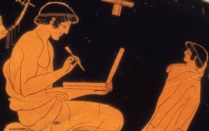A rich and sophisticated society that calls for study
Although much has been written about Cuba after Castro, relatively little has been written about Cuba before Castro. The political reality of Castro’s Revolution has created a historical void about this period, paying insufficient attention to an important century before 1959. Cuba has become a political punching bag, between supporters and critics of Castro and the Revolution, making it difficult to understand real life in Cuba because of the disproportionate preoccupation with, and monopoly of, the political reality on the island. In spite of some attempts, it continues to be easier and perceived as more pressing, to write about politics rather than the reality that Cubans experienced in their daily lives— their sufferings and celebrations, successes and failures, lives and deaths, and beliefs and disbeliefs. Going for and against the avalanche of information about the political authenticity in and out of Cuba, most Cubans have tended to forget that Cuba is much larger than the perceived reality after Castro’s Revolution. Too many have failed to remember the Cubans who have lived and worked in Cuba in the century before an important period of Cuban history where the nation was forged. Indeed, even limited attention reveals a rich and sophisticated society that calls for study.

In this book Gracia approaches this situation by telling true stories about some members of his family (Doctor Ignacio Gracia, Maruca Otero, the Marques de Arguelles, and many others) who lived during a culturally rich century before Castro. He hopes to entice historians, academics, tourists and others, to pursue a balanced exploration of the island by telling part of their stories. This enterprise is neither history nor fiction, but memories written by a Cuban who left Cuba when he was eighteen years old and has become a distinguished philosopher in the United States.
Cuba Before Castro: A Century of Family Memoirs by Jorge J. E. Gracia

Published July 15, 2019 This content is archived.
"In this partly biographical and partly philosophical work, Jorge Gracia provides us with an autobiographical account of his youth in Cuba prior and right after the Cuban Revolution. His is an unmatching riveting and revealing account of his life that can explain his love with philosophy, history and Hispanic/Latino culture in general. [...] With his broad background in the history of philosophy, especially Medieval and Latin American philosophy, Gracia has given us an exemplary account of how relevant philosophy could be for exploring challenging issues related to culture, ethnicity, and race. In sum, I think that unquestionably Jorge Gracia can be considered the living dean of Latin American philosophy in North America." — Vicente Medina, professor of philosophy, Seton Hall University. The book is available on Amazon.
